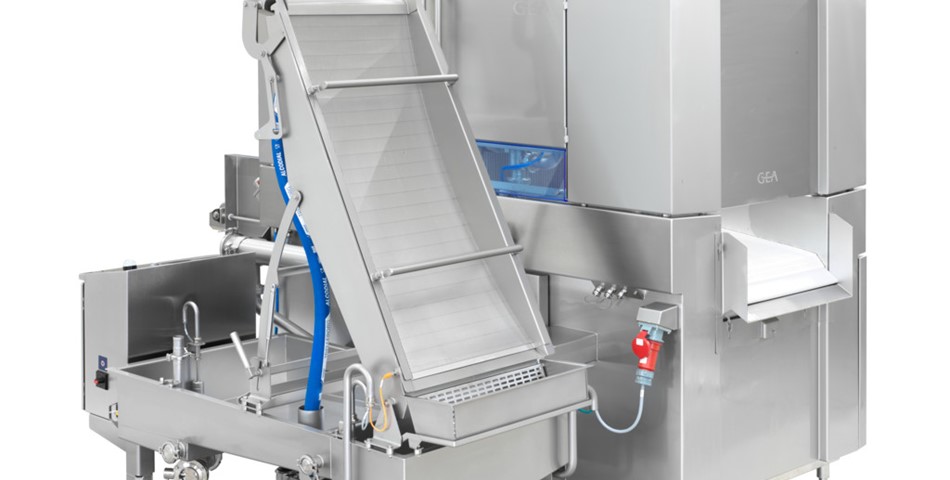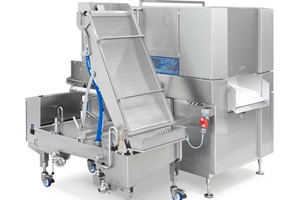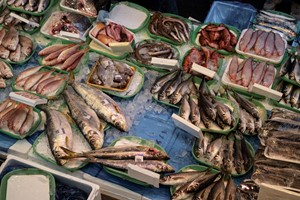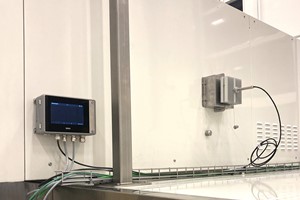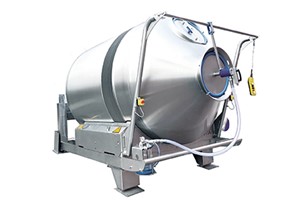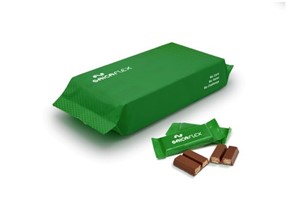The new GEA ScreenFilter passively filters brine using gravitation force and avoids protein activation which can clog injection needles. It is ideal for lighter brines which enhance flavor and extend the shelf life of high-quality food products such as ham, poultry and bacon. The filter promotes high process uptime, efficient brine use and a stable injection process which contributes to optimal food quality and food safety.
Its design complements that of the GEA MultiJector and comes with either 2mm or 3-4mm needles. With this technology process, control and repeatability for high quality marinated products is ensured. Marinated injected poultry, meat or fish offer more than just increased shelf life, this process also enhances flavor, color, juiciness and bite – and moreover, is essential for maintaining food processor yield. The key to achieving these benefits centers almost entirely around two principle facets: accurate brine distribution and the subsequent retention of that brine.
With its nearly 50 years of experience in food marinating, GEA experts have invented a new brine filtration system, the GEA ScreenFilter, which optimizes the food injection process.
Recycling brine reduces wastage
Brine is typically a highly concentrated water solution of salt and other functional or taste-enhancing substances. During industrial marination, the brine solution is introduced into meat, poultry or seafood pieces during the injection cycle. The overflow of the brine is picked up, filtrated and re-circulated for re-use. During this process it is essential that the brine is correctly filtrated without activating the proteins that come out of the meat. This requires filtering out fat and gel-like particles which otherwise would clog the needles during the injection process.
Clogging of needles as a result of poor filtration leads to interruptions in production for additional cleaning, reducing efficiency and compromising food safety. As brining is essential to achieve the required shelf life of cured products, inconsistent brining as a result of clogged needles can lead to uneven or incorrect brine distribution which increases the risk of spoilage, therefore compromising food quality and safety.
Passive filtration system reduces cleaning time
Given the effects of gravity, the brine runs down from the top of the filter deck. The filter is self-cleaning, taking the contamination with it. The filter itself has very few parts which require cleaning, which saves time and reduces damage which might otherwise occur as a result of repeated re-assembly. This design means the filter element does not rotate and nor is there continuous scraper action to remove the filtrate from the surface of the filter element.
The filter deck on the GEA ScreenFilter is easy to access and can be cleaned or exchanged while the filter is running, reducing cleaning time. The passive filtration process causes less foaming than active systems, which improves injection stability. Due to the special design of the filter tank, less brine is required to run the process, so wastage is reduced.




